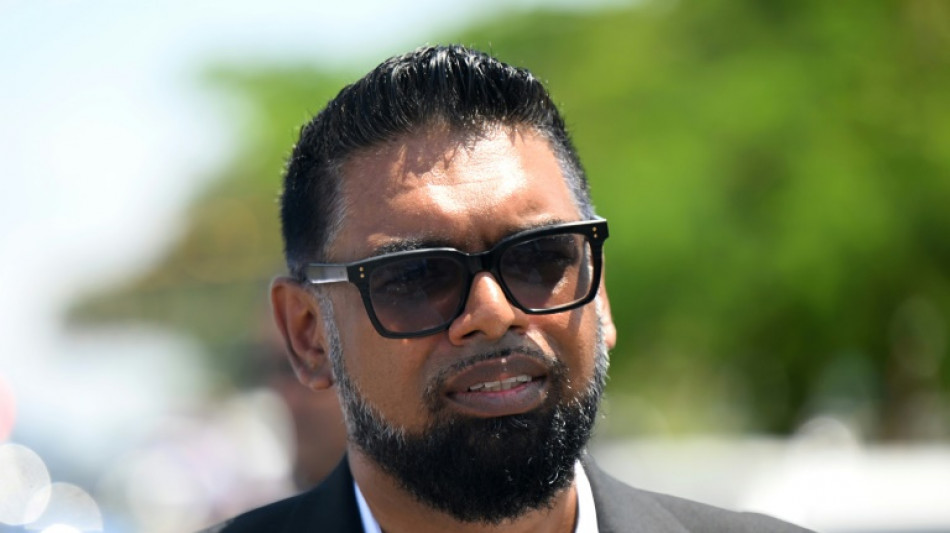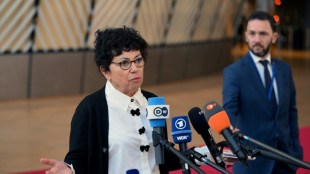

Guyanese President Irfaan Ali claims election victory
Guyana's President Irfaan Ali claimed reelection Wednesday to a second term, tasked with turning the South American nation's newfound oil riches into prosperity while navigating tensions with neighbor Venezuela.
"The numbers are clear... We have a great majority and we are ready to take the country forward," the 45-year-old told AFP by telephone.
Official final results of Monday's vote have not yet been published.
Ali faces the uphill challenge of reconstructing a country with the highest proven crude oil reserves per capita in the world but one of the highest poverty levels in Latin America.
According to a 2024 report by the Inter-American Development Bank, 58 percent of Guyanese lived in poverty despite an oil boom that has quadrupled the state budget to $6.7 billion since production began in 2019.
Guyana, with its breakneck pace of economic growth at 43.6 percent in 2024 -- the highest in Latin America -- aims to boost oil output from 650,000 barrels per day to over a million by 2030.
Ali had promised on the campaign trail to "put more money in your pocket."
"Guyana will soon be a rich country, and the question is whether it will be a rich country full of poor people or whether... the wealth meets the needs of the people," Jason Carter of the US-based Carter Center NGO, which observed Monday's vote, told reporters in Georgetown Wednesday.
"The world is watching," he added.
- Wealth 'like we've never had' -
Much of the crude reserves are in the Essequibo region that makes up two-thirds of Guyana's territory but is also claimed by once-rich petrostate Venezuela.
A territorial dispute between the neighbors has intensified since ExxonMobil discovered massive offshore oil deposits in Essequibo a decade ago.
The region has been administered by Guyana for over 100 years.
On election day, Venezuela upped the ante by accusing its neighbor of "trying to create a war front" after Guyana claimed Venezuelan troops had shot at a boat transporting election materials in Essequibo.
Ali's main rivals in Monday's vote were Aubrey Norton of the leftist opposition People's National Congress Reform (PNCR) and multi-millionaire populist Azruddin Mohamed, who founded his own We Invest in the Nation (WIN) party.
Observers from the Carter Center and the European Union reported Wednesday that the vote took place without any major incident, but highlighted an "uneven playing field" created by the use of public resources to exert "undue influence" on voters in favor of the ruling party.
"The President and his administration inaugurated a high number of public projects (hospitals, schools, roads and bridges) and launched several social support programs combining these events with campaign activities," said the EU mission's preliminary report.
The top presidential contenders had all vowed to improve the lot of Guyanese, promising better health, education, infrastructure and higher salaries.
Opposition leader Amanzia Walton-Desir, who also stood in the presidential race, lamented that Guyanese are still poor despite "wealth coming into this country like we've never had."
She argued that government spending on infrastructure and social subsidies were contributing to inflation.
"The trickle-down economics that the government continues to practice... will not work," she told AFP, adding that "for every dollar we spend on infrastructure, 41 cents is wasted" due to corruption.
O.Medina--GBA



